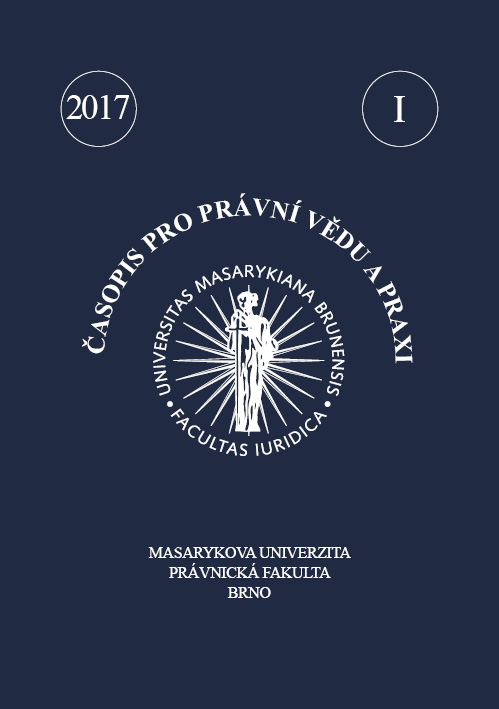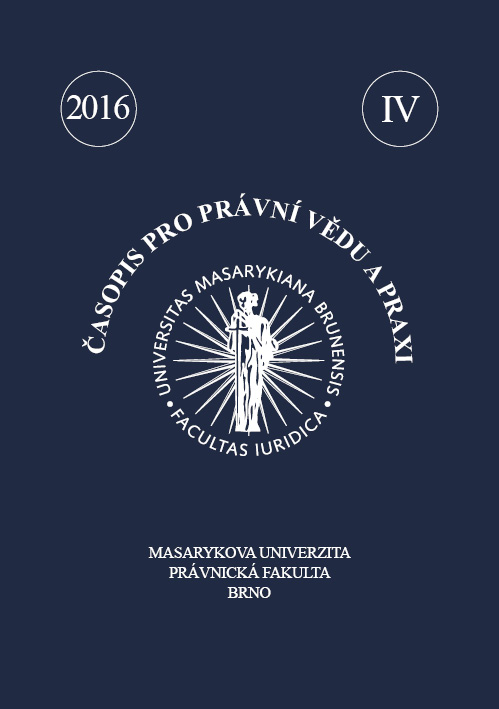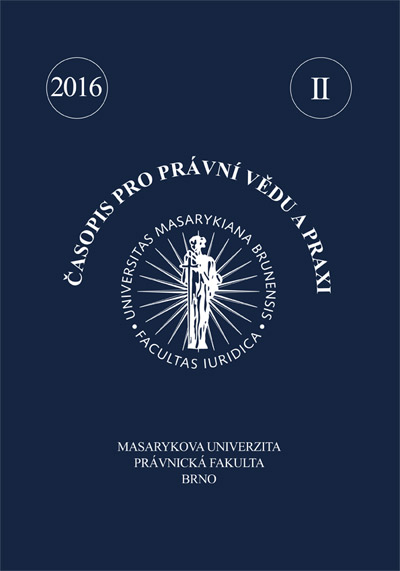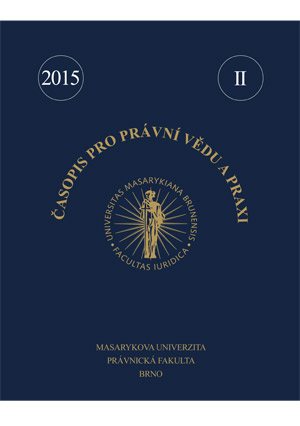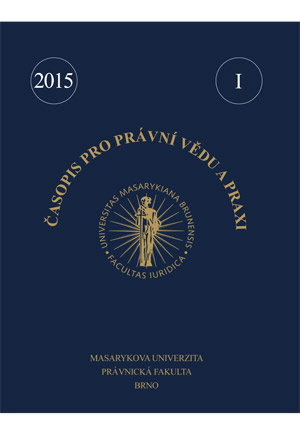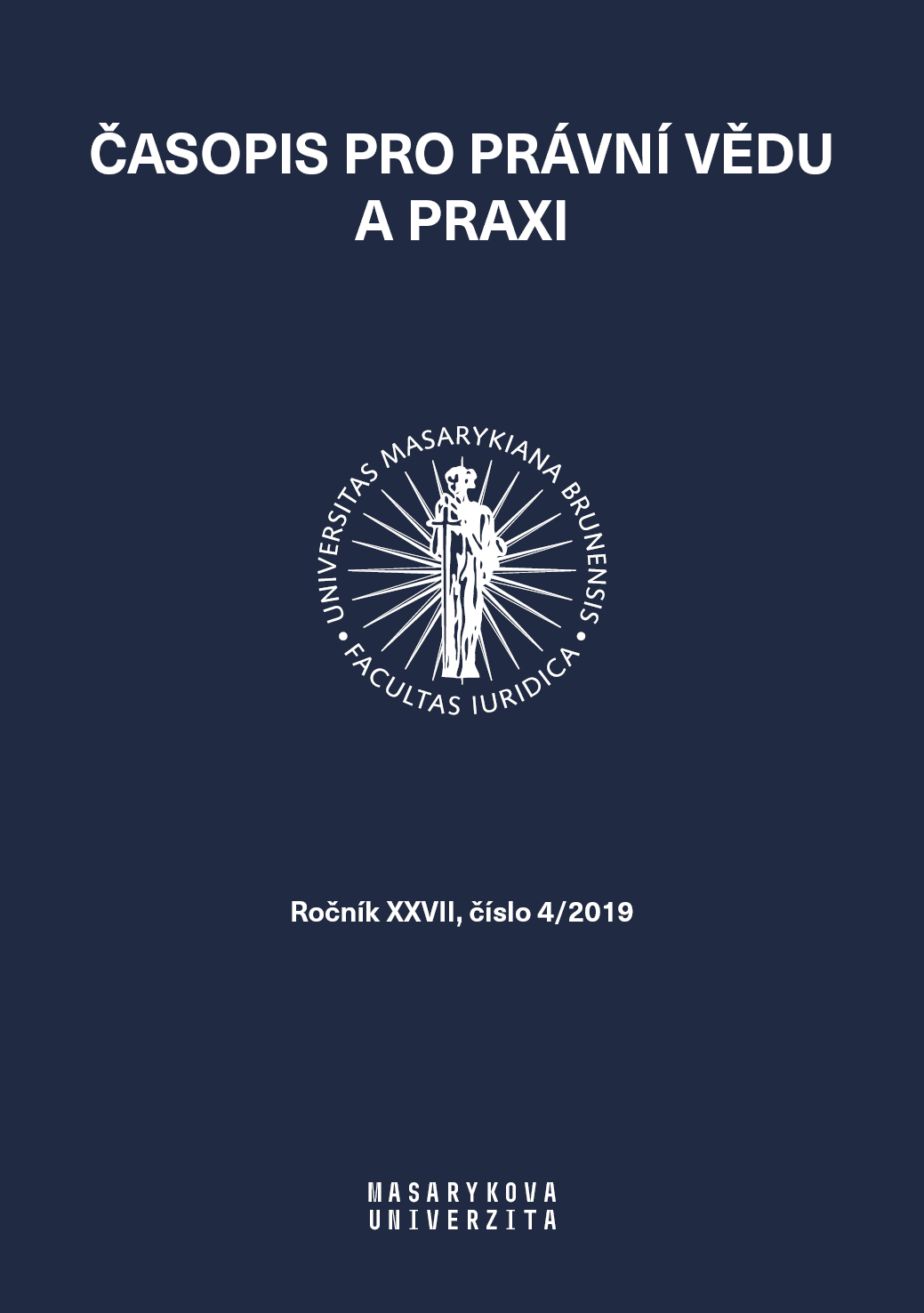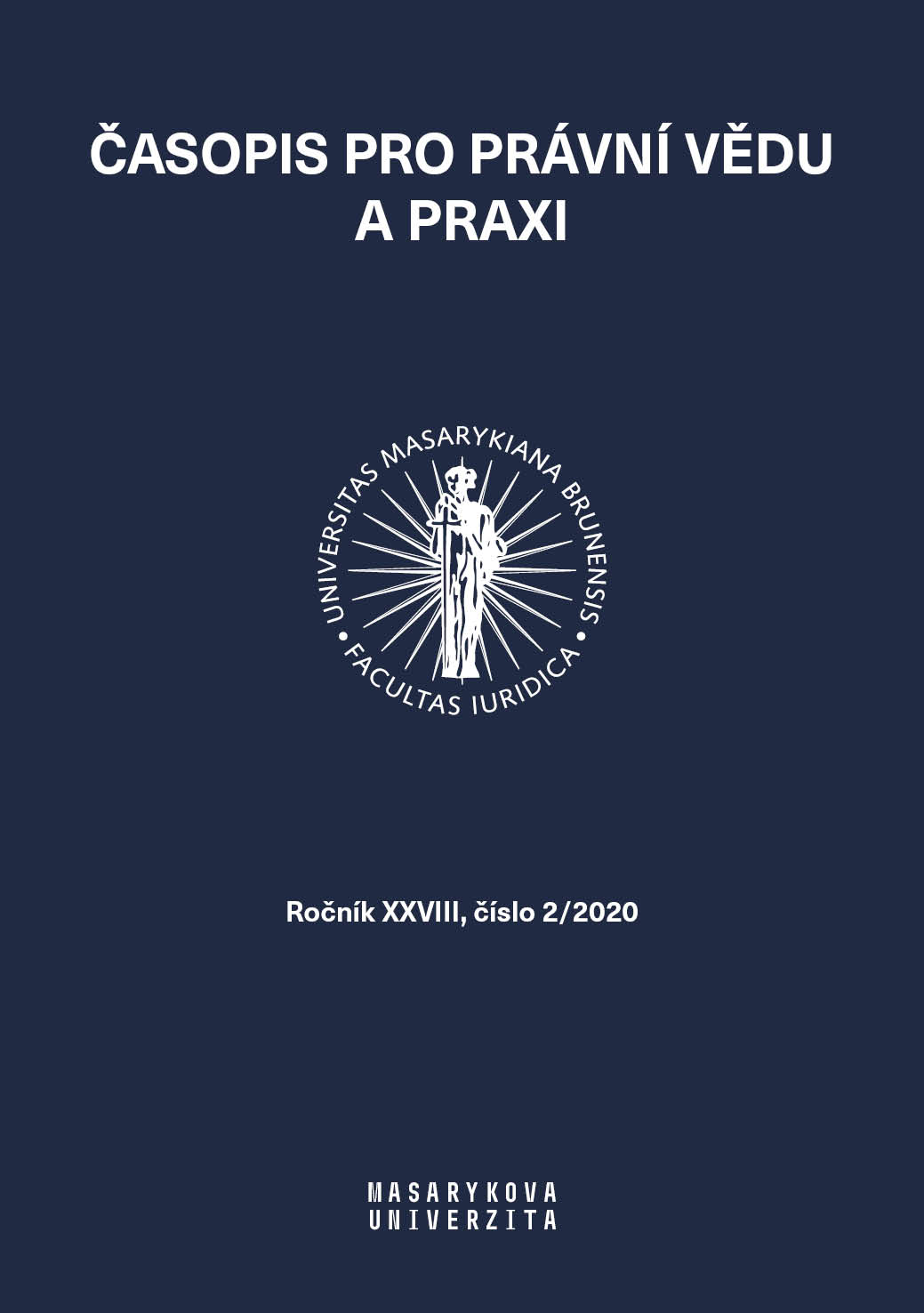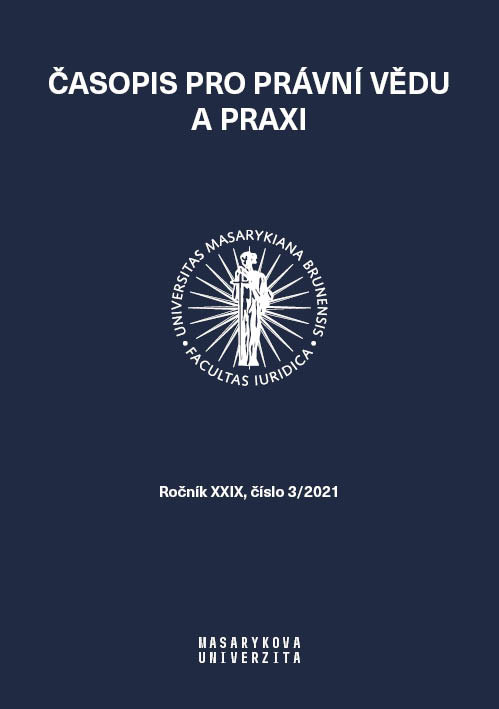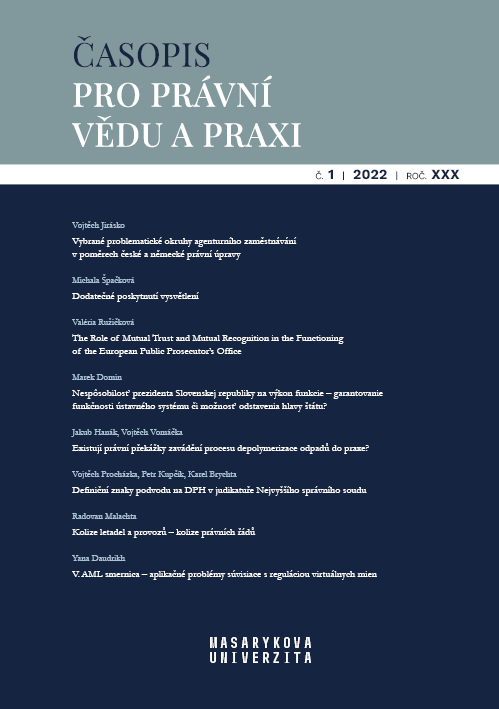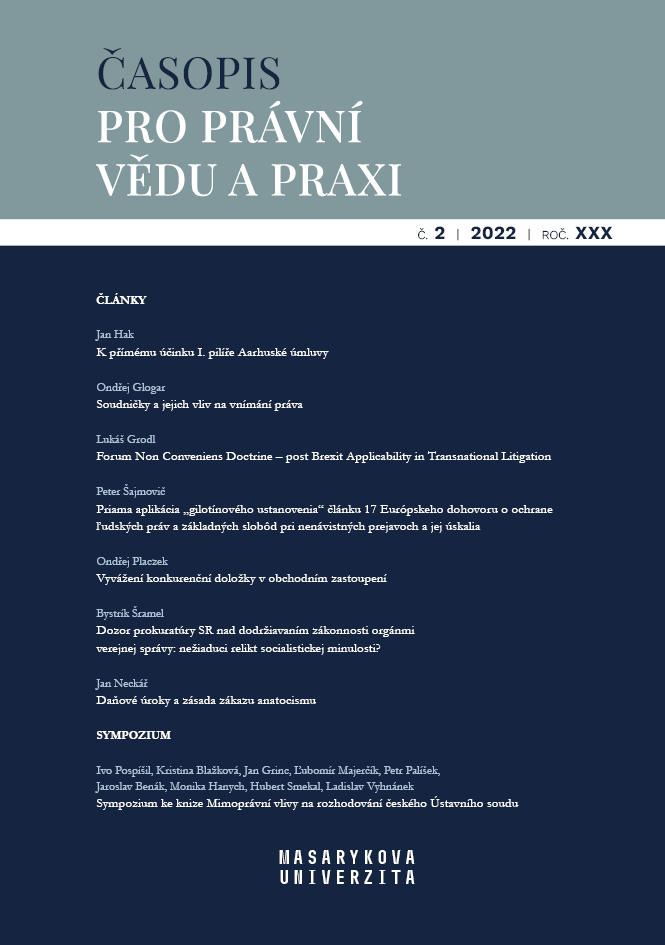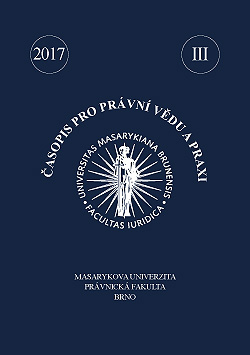
Praktické aspekty stavění promlčecí doby při neplatné podnikatelské rozhodčí doložce
Arbitration was an effective and cost-effective alternative to civil justice, in particular for entrepreneurs. Private arbitration companies that have not and still do not have the status of arbitral tribunal have also been using private lawsuits to make decisions on property disputes. In the application practice of general courts, in recent years, the issue of cancellation of null arbitration awards issued by these private arbitrators resonates in favour of a conflict of arbitration clauses, according to which the competence of private arbitrators was based on Act No. 216/1994 Coll., On arbitration proceedings on the performance of arbitral findings in the valid Or, in case of conflict with another legal regulation. The purpose of the paper is to point to one of the many interpretative difficulties in connection with the annulment of arbitration awards issued on the basis of invalid arbitration clauses, whether by applying the claim to an arbitrator by an annulment of an arbitration clause, the running of the limitation period is established and under what conditions. Further, carry out a brief analysis of the current judicial practice in the annulment of arbitrarily arbitrary judgments and a legal interpretation of the implications of this approach of general courts in the matter of the limitation of property rights, especially with a focus on legal relations between entrepreneurs. The effects of a non-arbitrary award cannot be automatically applied to an act of filing arbitration in respect of the principle of legal certainty as a fundamental prerequisite for the rule of law. The filing of an arbitration award based on an invalid clause, based on the views of the authors of the contribution, results in a certain amount of limitation. The authors split the contribution into two parts. In the first part, they provide an introductory explanation of the subject matter and take positions on the case-law on invalid business clauses. In the second part, they define the impact of the jurisprudence of courts in the area under review in relation to the question of setting the limitation period and submit proposals for solutions in accordance with the valid legislation.
More...
